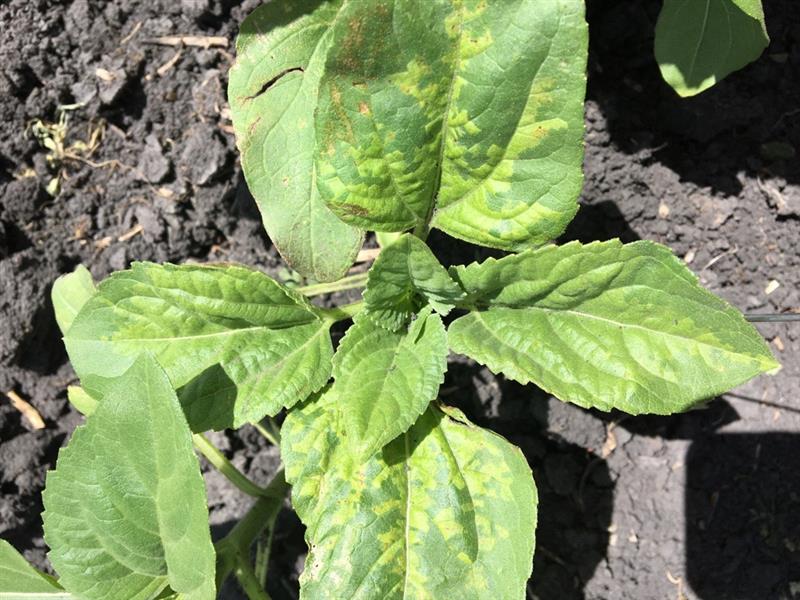Disease resistance is a dominant focus for Nuseed’s sunflower breeding program. Developments in hybrids offering resistance against downy mildew, black sunflower rust or verticillium wilt will offer growers the options they need against these threats.
Downy Mildew Resistance
Downy mildew is a significant threat to sunflower growers in the Great Plains states.
“We’re heavily testing and starting to launch a hybrid with multiple genes of resistance for downy mildew,” says Jeremy Klumper, Nuseed’s Sunflower Breeding Lead for U.S. and Europe. “Having multiple genes of resistance makes our hybrids more robust and durable.”
Utilizing more than one gene ensures there are multiple modes of action against this disease, which extends its effective time period, even if the disease mutates or adapts.
Hybrid N4H490 E, was soft launched in 2023 and will be available for broader sales in 2024. Growers who have been affected with virulent races of downy mildew should consider this hybrid.
“Having this level of protection makes it a product growers are going be interested in,” Klumper shares. “They’re going to know they’re not just relying on a seed treatment or inferior downy mildew genes. They’re going to have a robust set to work with.” This trait is added on top of yield, oil content and other valuable seed characteristics.
“Behind that we have multiple other hybrids with an additional gene of tolerance that we hope will enter the advancement process and be coming up in future years for commercialization,” says Klumper. “One of these is N4H205 E, which underwent testing in 2023.”
Black Sunflower Rust
A black sunflower rust resistant gene has been publicly identified, and Nuseed has genetic markers for it.
“We’re starting to use that in an integration process to bring black rust resistance primarily into confection inbred lines,” shares Klumper.
Confection sunflowers produce larger kernels that are lower in oil content. These are sold as a snack food, like the Spitz® brand sunflower seeds we see in stores.
Rust affects the foliar surface, stopping photosynthesis and removing the plant’s ability to finish its lifecycle.
“Having that resistance gene allows that plant to be healthy all the way through maturity, making sure seed quality is high, and top yield can be realized,” explains Klumper.
Verticillium Wilt
Verticillium wilt resistance is on a similar path to black sunflower rust. Researchers have identified resistance and completed the lab marker work around that resistance. Now Nuseed will work to integrate that trait into a commercial line.
Both black sunflower rust and verticillium wilt-resistant hybrids are in the early stages of development. The markers are identified, and researchers will now backcross the traits into a commercial inbred that is already proven and successful with farmers and processors.
For more information on identifying and fighting against these and other sunflower diseases, review the NDSU Sunflower Disease Diagnostic Series.
